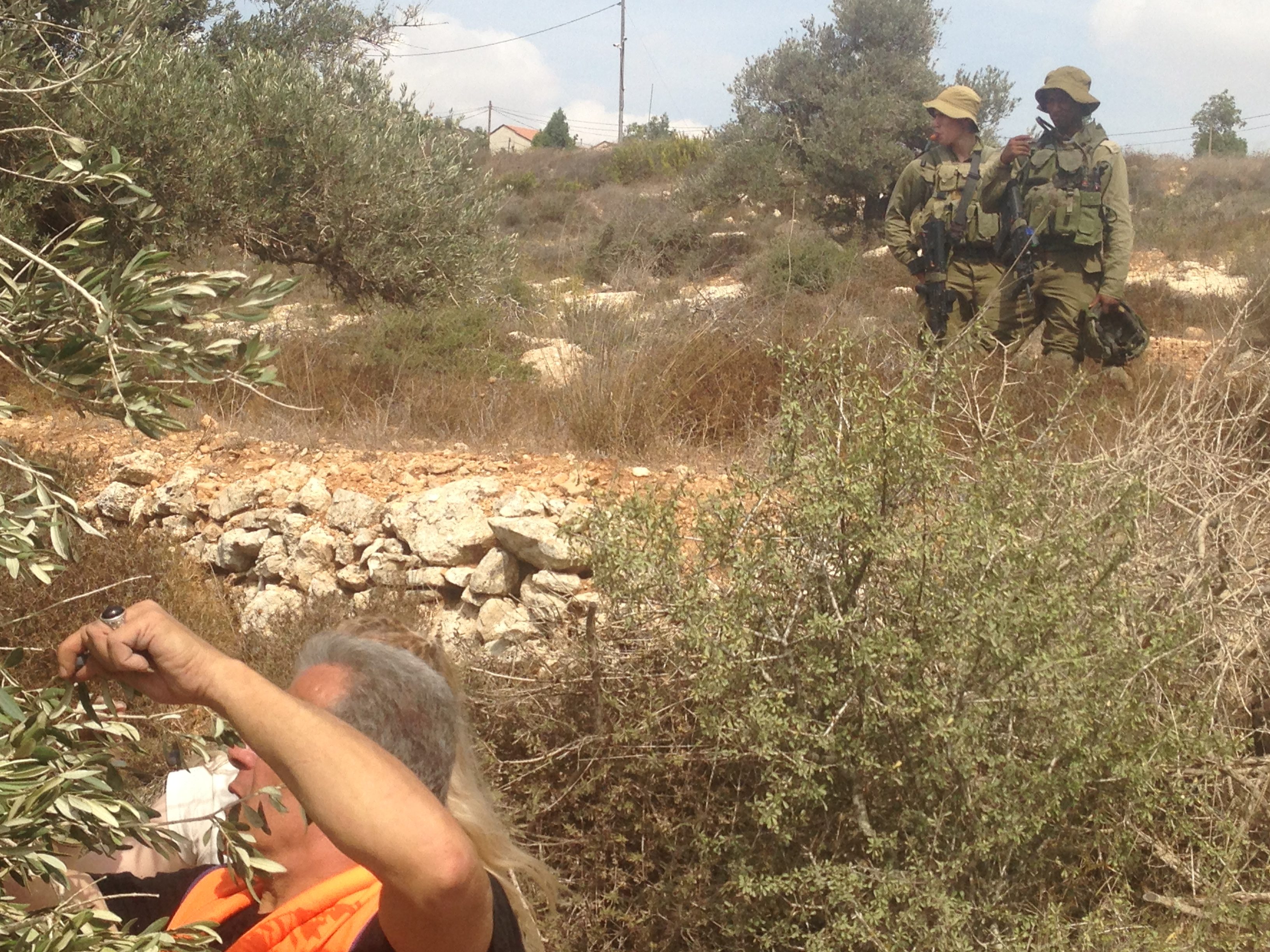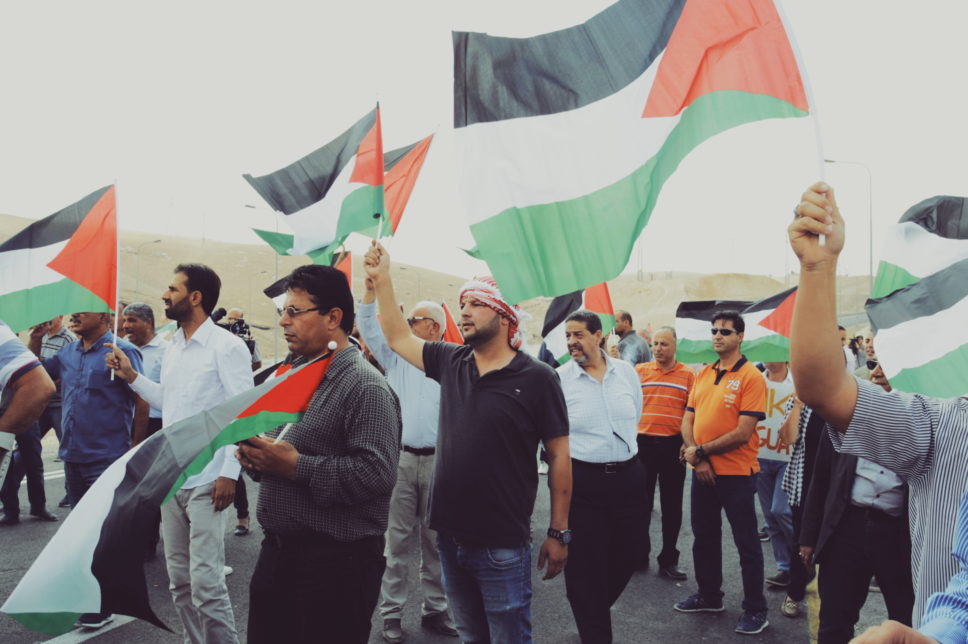Category: Reports
-
Video: Israeli soldiers, police harass olive pickers in As-Sawiya village
October 7, 2018 | International Solidarity Movement | As-Sawiya, Occupied Palestine A group of Israeli soldiers, one Israeli policeman, and one Israeli settler harassed a group of Palestinian and international olive pickers in As-Sawiya village yesterday, demanding identification and threatening to expel the harvesters from the area. Soon after the group began work,…
-
Israeli Forces Storm Khan Al-Ahmar: Erect Road Blocks, Suppress Peaceful Demonstration
Around 11.30 am a bulldozer escorted by a police and military vehicles approached the Bedouin village of Khan al-Ahmar and began to move rocks and earth in order to block access to the village via dirt roads on the outskirts to prevent resident and activists from reaching the area. Soon after, locals and activists approached…
-
Activists stand in solidarity with the residents of Khan al-Ahmar
7 September 2018 | International Solidarity Movement, Ramallah team | Khan al-Ahmar, occupied Palestine After an Israeli court ruling on September 5 2018 confirmed the eviction and demolition of the Palestinian Bedouin village of Khan al-Ahmar, residents of the village, Palestinians from across the West Bank and international activists have gathered each day in solidarity…



